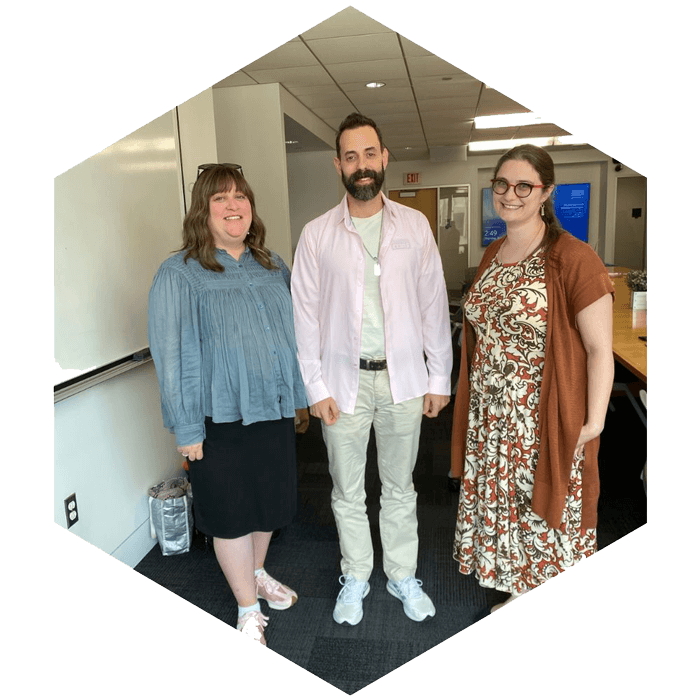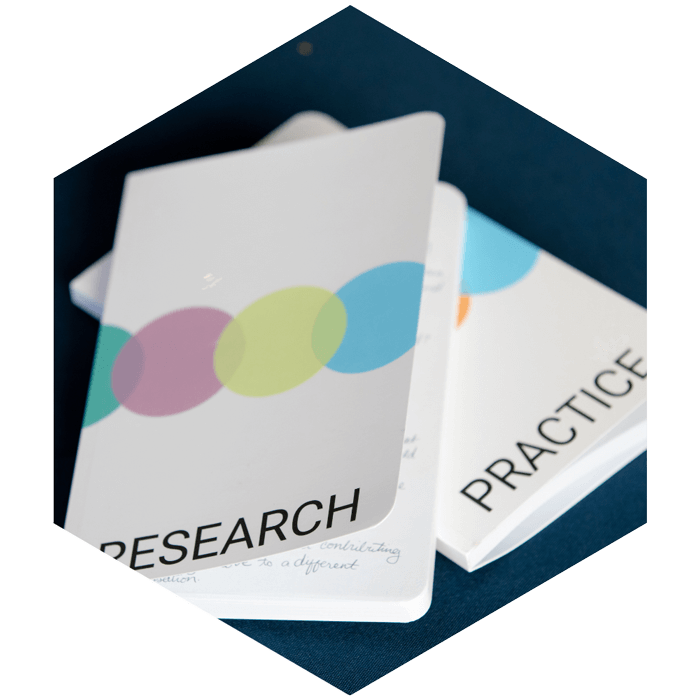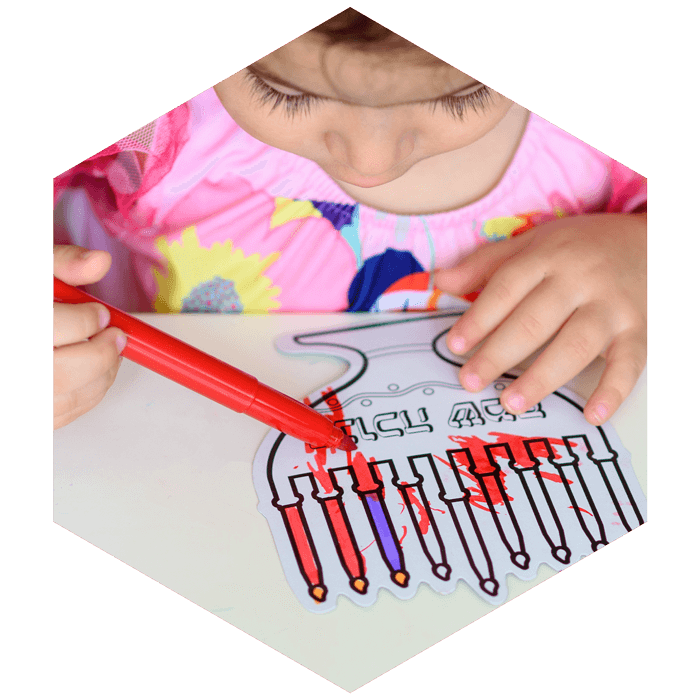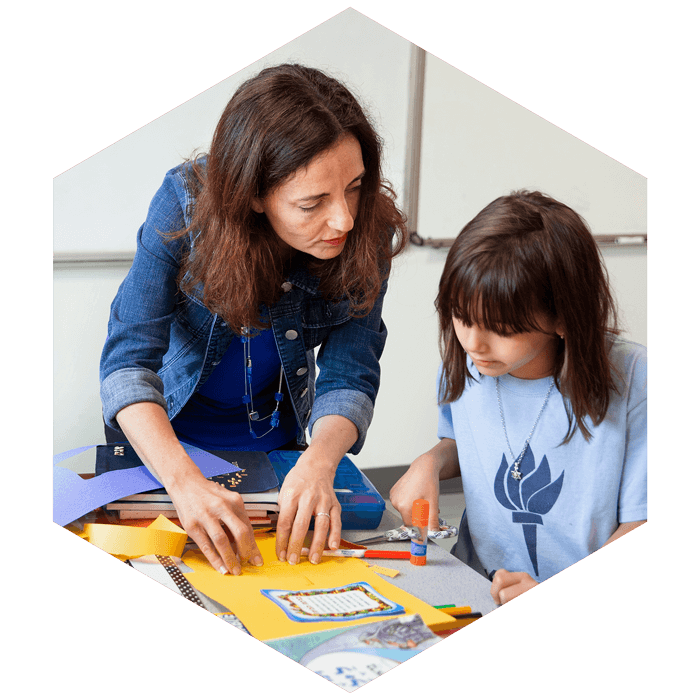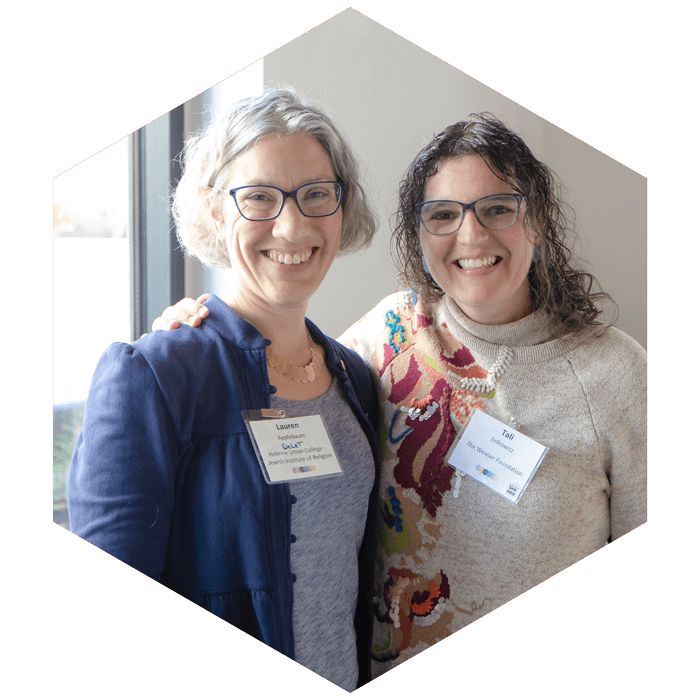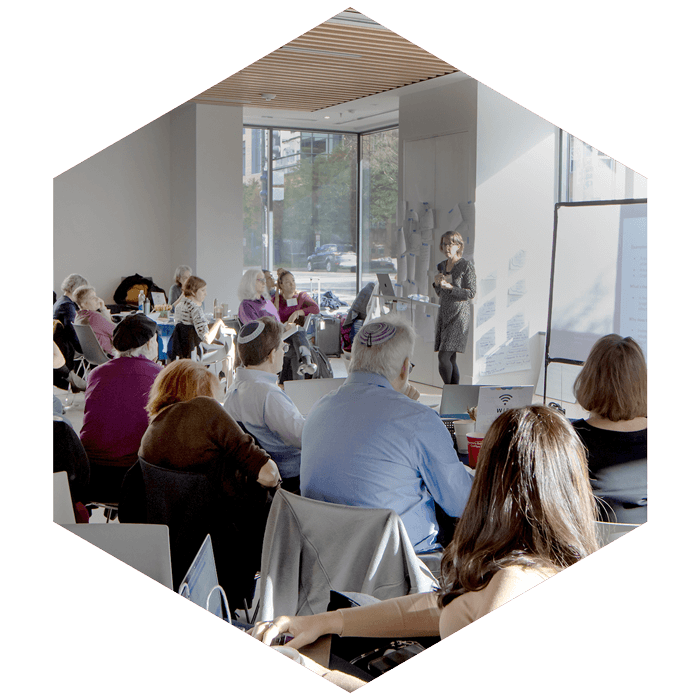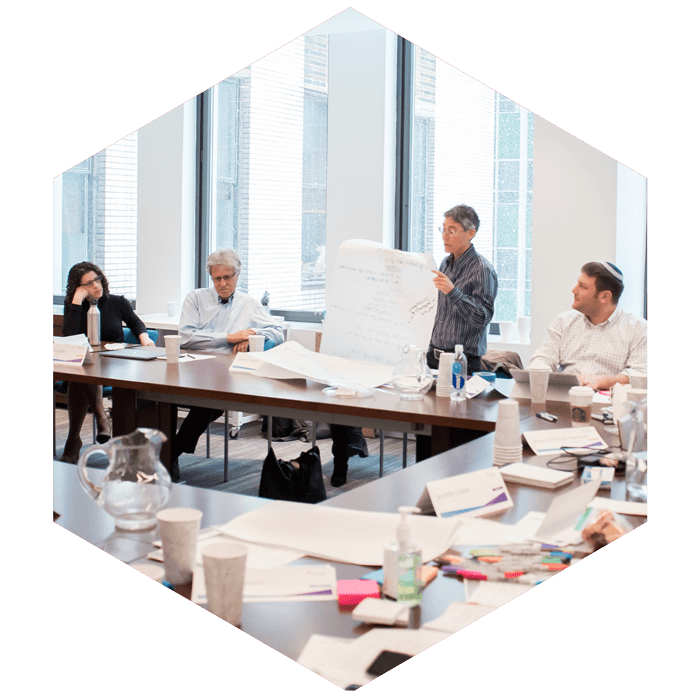Our Work
CASJE supports high-quality research and high-quality research use through a set of core activities that bring together practitioner leaders, funders, and researchers. These activities are guided by our mission, principles, and stance on collaboration and knowledge-sharing.
Featured Current Projects
Applied Research Fellowship
This advanced training program prepares scholars to meet the research needs of Jewish educational and communal organizations and expands the field's researcher pipeline.
Shabbat Dinner Study
CASJE, in partnership with OneTable, is researching the impact of Shabbat dinner on social connectedness. The study’s key findings will be shared widely when completed in 2026.
Research Use Group
This program, tailored for Jewish educational and engagement professionals, empowers participants to build their capacity to lead
research-informed initiatives.
Research Digest
Keep up-to-date on critical new research about American Jews at this moment. The current Research Digest focuses on the expanding global crisis that began with the Hamas terrorist attack of October 7th.
Research Studies: Larger Scale and Small Grants
Shabbat Dinner Study
CASJE, in partnership with OneTable, is researching the impact of Shabbat dinner on social connectedness. The study’s key findings will be shared widely when completed in 2026.
Career Trajectories Study
The CASJE Career Trajectories of Jewish Educators Study was designed to provide usable knowledge about the recruitment, retention and development of Jewish educators. The study is made up of four interlocking sub-studies: Preparing for Entry, On the Journey, Mapping the Market, and the Census, each designed to respond to one of four central research questions.
Jewish Early Childhood Education Study
This study explored how Jewish early childhood education can serve as a gateway for greater and long-term involvement in Jewish life. The study sought to define and measure Jewish engagement as relates to early childhood educational settings, identify promising Jewish engagement practices for families with young Jewish children, and examine childcare choices and levels of Jewish engagement among families with young Jewish children both before and after early childhood education enrollment.
Hebrew Language Education
One of CASJE's original "Areas of Focus," CASJE has engaged in a number of projects focused on Hebrew language education, including formulating a program of applied research to address problems and improve the teaching and learning of Hebrew, conducting literature reviews, and sponsoring research.
Educational Leadership in Jewish Day Schools Study
Leaders of Jewish day schools play an important role in shaping, nourishing, and sustaining Jewish commitment. School leaders directly affect educational programs; teachers’ professional practice; and how administrators, faculty, students, and parents work together as a community. This mixed-methods research project investigated educational leadership in Jewish day schools, with an interest in how leaders shape the school environments for teachers and students.
Small Grants Program
The CASJE Small Grants Program supports studies of Jewish educational processes and outcomes. These grants are intended to stimulate research that investigates Jewish education and its effects, and that is well-positioned to inform practice. Small Grants projects have investigated learning across the wide variety of settings where Jewish education happens and focus on learners of any age across the lifespan.
Professional Learning Programs
Applied Research Fellowship
This advanced training program prepares scholars to meet the research needs of Jewish educational and communal organizations and expands the pipeline of researchers in Jewish education and communal life.
Research Use Programs
These programs, tailored for Jewish educational and engagement professionals, empower participants to build their capacity to lead research-informed initiatives.
A Convening for Providers of Professional Learning in the Field of Jewish Education
CASJE, in collaboration with the Wexner Foundation, M2, The Jewish Education Project, the Jewish New Teachers Project, and DEEP hosted an in-person convening of Jewish educational leaders at GW University. The convening focused on connecting professional development, Jewish education, and research.
Other Programs & Events
From Findings to Funding: How to Use Research Evidence in Philanthropic Decision Making
In partnership with the Jewish Funders Network, and Third Plateau Social Impact Strategies, this program guided grant-making professionals in leveraging research evidence to shape their funding strategies.
CASJE's Career Trajectories Study: Implications for ADCA Professionals
In this two-part series with ADCA (Association of Directors of Communal Agencies for Jewish Education), CASJE led a deep dive into the Career Trajectories Study data and facilitated discussion about implications for strategic priorities.
Knowledge Sharing Activities
Research Digest
Keep up-to-date on critical new research about American Jews at this moment. The current Research Digest focuses on the expanding global crisis that began with the Hamas terrorist attack of October 7th.
Shared Research Agenda
In June 2022, CASJE convened a group of practitioner leaders to help us understand what questions, concerns and opportunities ought to shape our research agenda over the next few years. The group generated nearly 100 areas of interest and also indicated which areas they thought should be prioritized.
Problem Formulation Convenings
CASJE convenes interdisciplinary groups of researchers, practitioners, and funders to deliberate and conceptualize an area of interest and offer several promising directions for research. The goal is to ensure that specific questions being pursued are those that are most important to practice, not simply those that are of special interest to scholars or funders.
Blogcasts
In 2014 and 2015, CASJE hosted a series of Blogcasts - online, multi day, text based panels on a hot topic in Jewish education research, funding, or practice. The Blogcasts were open to anyone and viewers were encouraged to join the conversation with comments and questions for the panelists. The topics of conversation came out of CASJE's signature Problem Formulation Convenings (PFC).
Consultations
Speak with CASJE
CASJE offers free 30-minute consultations to professionals in mission-aligned organizations with questions about research. And while we are always happy to discuss CASJE research, our consultation discussions are framed more broadly. Consultation topics frequently focus on: advice on designing a new study or evaluation process, review of a survey instrument you are planning to field, help finding and assessing existing published research relevant to your work, making sense of data your organization has already collected. To sign up for a consultation, please email casje gwu [dot] edu with the questions you would like to discuss.
gwu [dot] edu with the questions you would like to discuss.



